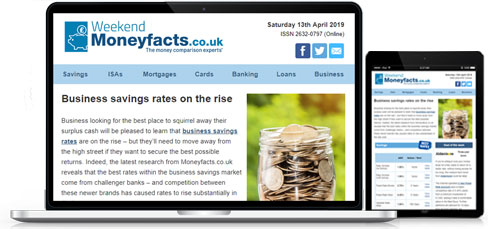UK No Fee Bank accounts. Click here.

_All_125x100.png)

_All_125x100.png)

_All_125x100.png)

_All_125x100.png)

_All_125x100.jpg)

_All_125x100.png)

_All_125x100.png)

_All_125x100.png)

_All_125x100.png)

_All_125x100.png)

Eligible deposits with UK institutions are protected by the Financial Services Compensation Scheme up to a maximum level of protection of £85,000 per person per institution. Our data experts work tirelessly to make sure the rates and information we show are up to date and correct. Moneyfacts.co.uk Limited is an independent credit broker not a lender. We will receive a payment from credit providers where customers link to them from Moneyfacts.co.uk. None of these arrangements affects our independence.
DisclaimerAll overdrafts are subject to the applicant’s status. You may not be offered credit. All rates and fees are subject to change without notice. Please check all rates and terms before borrowing.
Quick LinksQuick links are where we have an arrangement with a provider so you can move directly from our site to theirs to view more information and apply for a product. We also use quick links where we have an arrangement with a preferred broker to move you directly to their site. Depending on the arrangement we may receive a modest commission either when you press a 'Go to Provider' or 'Speak to a Broker' button, when you call an advertised number or when you complete an application.
Free, no fee bank accounts
At a glance
- You are not charged a monthly or annual fee to use the basic functions of a free bank account.
- Some charges might be made to use additional functions such as overdrafts, certain other transactions or where payments are refused.
- There are some restrictions to opening a free bank account for example you need a good credit rating.
Fee free bank account features
The basic features of the bank account that you will not be charged for are:
- Using a debit card to pay for things in store and online
- Writing cheques
- Setting up direct debits and standing orders
- Transferring money using telephone or online banking
- Paying cheques into your account (as long as they are in sterling)
- Checking your bank balance
- Withdrawing money over the counter and at most cash machines.
Additional fees
While these bank accounts are free from monthly and annual fees, there are times when you will be charged. These charges will be included in the account’s terms, which you will be informed of when you open the account. The main additional fees you could be charged for include:
- Overdraft charges
- Refused direct debits and standing orders
- Using your card abroad.
- Withdrawing money from ‘convenience’ cash machines.
Overdraft charges
When applying for a free bank account, you will also be able to apply for an overdraft. An overdraft is money loaned from the bank that provides you with additional funds for the short term or emergencies. If you go into your account’s overdraft, you will be charged interest which was outlined in the terms when opening the account. The amount you can borrow in your overdraft depends on how much the bank is willing to lend you and is normally impacted by your credit rating. Most free bank accounts provide the ability to apply to increase, or decrease, your overdraft limit at any time however your application may not be accepted.
Refused Direct Debits and standing orders
If you don’t have enough money in your account at the time a direct debit or standing order is due to go out, and the transaction is rejected, you are likely to be charged a fee. This charge can be as much as £25 for each refused payment but the specific amount will be outlined in your account’s terms.
Using your card aboard
Free bank accounts provide you with the ability to use debit cards abroad, both to withdraw money from cash machines and pay for products and services with the card. Again, banks will often charge a fee (foreign usage fee, along with a cash withdrawal fee if you withdraw money) to use the debit card abroad. If you are planning to use your debit card abroad, check the charges you will have to pay before leaving so that you are not hit with unexpected fees or, alternatively, consider getting a travel card instead which will be free to use abroad.
Withdrawing money
While most cash machines are now free to use some convenience cash machines do charge for withdrawing money – These charges are not related to your bank account but rather fees that the ATM company charges, regardless of the type of account. These charges vary but can be as much as £5 per withdrawal. Often convenience cash machines are located in small shops, garage forecourts and in nightclubs.
Interest rates
Some free bank accounts will pay interest rates on the credit you have in your account. If you often have a lot of money in your account, it would be a good idea to look for an account that offers a good interest rate but remember that the rates provided by a free bank account will be lower than that paid to a high interest rate current account (these accounts normally charge a monthly or annual fee).
Rewards
Some banks now offer a rewards scheme on their free bank accounts. The rewards on offer vary and it is worthwhile to shop around to find the best rewards scheme for your individual needs.
Who can apply for a free bank account?
Free bank accounts have a minimum age of 16, or even 18 on some accounts. In order to apply for a free bank account, you will need proof of ID and proof of address. As well as this, you should be aware that banks will run a credit check, so a good credit history is required. Some free bank accounts also require you to make a minimum monthly payment into the account.
How to apply for a free bank account
You can apply for a free bank account in person at your local bank, by post or online depending on the provider. As we said before, a credit check will be carried out when applying for the account so there is no certainty that your application will be accepted.
Pros and cons of fee free bank accounts
- A free and convenient way to manage your money on a day-to-day basis.
- Flexible in an emergency – subject to your bank agreeing to give you credit, you may be able to access an overdraft. Interest may be paid when your account is in credit.
- Rewards schemes could benefit you when using your card.
- Additional charges may apply for using functions such as overdrafts.
- You might be required to make a minimum monthly payment or monthly salary into the account.
- Your application could be rejected if you have a bad credit history or cannot meet the requirements of the account.
Sending money abroad
Find out how to send money abroad easily, securely and quickly using an international money transfer specialist. Our guide explains how it works and the costs involved.
How Moneyfacts works

BALANCED. Moneyfacts.co.uk is entirely independent and authorised by the Financial Conduct Authority for mortgage, credit and insurance products.

FREE. There is no cost to you. Our service is entirely free and you don't need to share any personal data to access our comparison tables.

TRANSPARENT. We only receive payment from product providers and intermediaries for quick/direct links and adverts through to their websites.

COMPREHENSIVE. We research the whole market and scour the small print so you can find the best products for your needs.



Comments
Post a Comment